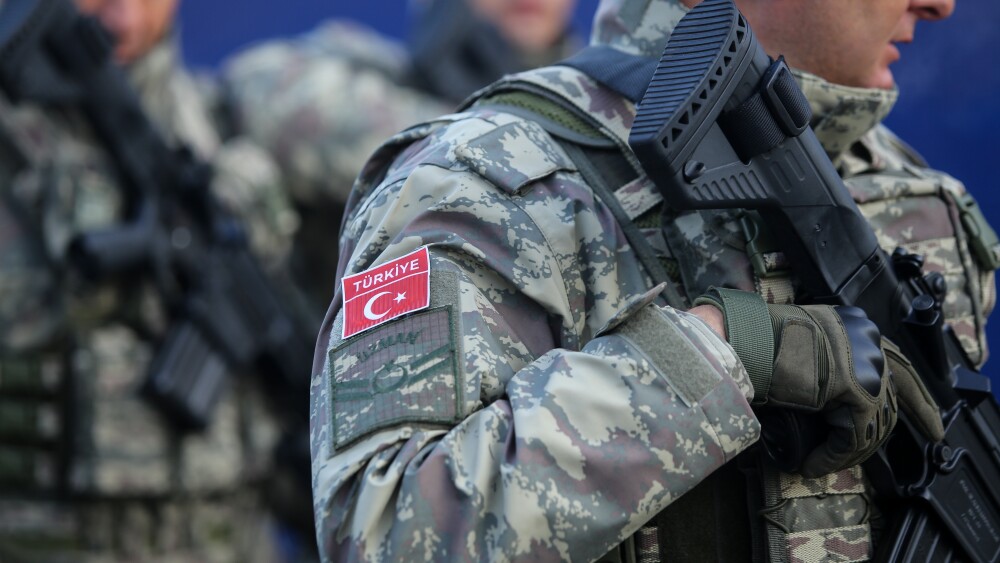A decade ago, the Turkish army imposed a curfew on Cizre, Mardin, and other Kurdish towns and cities. It cut water and electricity in an illegal act of collective punishment. Diabetics died for lack of insulin, and when indiscriminate Turkish shelling wounded civilians, because Turkish forces would not allow them to take them to the hospital. Satellite images show wanton destruction. Reports suggest Turkish soldiers killed several suspected Kurdish activists execution-style.
Turkish Air Force bombings of predominantly Kurdish and Yezidi villages continue.
The annual State Department human rights report on Turkey is blistering, citing Turkey for “arbitrary or unlawful killings; torture or cruel, inhuman, or degrading treatment or punishment; arbitrary arrest or detention; transnational repression against individuals in another country; witting cooperation with other countries to facilitate acts of transnational repression; unlawful recruitment or use of children in armed conflict by government-supported armed groups outside of the country; and serious restrictions on freedom of expression and media freedom.”
The Turkish Army has occupied northern Cyprus for more than a half century. They are complicit in ethnic cleansing and theft of resources.
Turkish Air Force bombings of predominantly Kurdish and Yezidi villages continue. What Turkish reports cite as Kurdish terrorists are often farmers and schoolchildren, many of whom do not own a gun. Even United Nations High Commissioner for Refugees personnel must avoid driving after dusk or taking roads close to the Turkish border in Iraq, lest Turkish troops fire upon them. Nor are the Kurds the only people whom the Turkish Air Force harasses. Turkish jets regularly overfly Greek islands. The Turkish Navy, meanwhile, alternately harasses and cynically facilitates illegal refugee flotillas to weaponize migration.
Turkey has launched court proceedings against Israeli Prime Minister Benjamin Netanyahu and senior Israel Defense Forces commanders for alleged war crimes in Gaza. In practice, the Turkish complaint is meaningless. President Recep Tayyip Erdoğan’s motivation is distraction, not justice. If he can inflame Turks toward Israelis and Jews, they might not ask about inflation and the Turkish lira’s collapse against pretty much every currency except the Congolese Franc, Nigerian Naira, and Venezuelan Bolivar. Few take Turkey seriously. It hosts Hamas, and Turkey’s intelligence service often fabricates evidence. Accusations generated by dictatorships hold little credibility on the world stage. Turkey can deny transit rights to Israeli aircraft, but its case has little other impact.
The idea of holding militaries to account for violating the rule of law and human rights, however, is not new. Following World War II, the International Military Tribunal for the Far East tried eighteen Japanese flag officers; seven received the death penalty. Individual countries tried another 5,700 lower-ranking officials. The International Criminal Court has charged Russian soldiers with war crimes in Ukraine. Spain used universal jurisdiction to charge Argentine naval officer Adolfo Scilingo with crimes against humanity for his role in Argentina’s dirty war.
The European Union and United States should ban any Turkish soldier who has served as part of the occupation force in Cyprus.
If Western and moderate Arab countries Turkey harasses or occupies militarily are serious, they should investigate and, if merited, charge Turkish soldiers with war crimes and human rights violations. No Turkish soldier who served in southeastern Turkey during the massacres in Cizre, Mardin, and Diyarbakir should be able to travel in the European Union, fly on a European carrier, or even traverse European airspace without first submitting to an interrogation about their record. The European Union and United States should ban any Turkish soldier who has served as part of the occupation force in Cyprus; Iraq might treat Turkish soldiers who served in Bashiqa the same way. The West should also ban all Turkish F-16 pilots who violated Greek airspace or terrorized Kurdish and Yezidi villages. If this means that pilots wishing to travel outside Turkey must submit themselves to questioning and polygraphs, so be it. Nor should sanctions apply only to travel; any Turkish soldier whose records indicate possible complicity in war crimes should lose access to Western or Arab banks and credit cards.
Erdoğan talks about trying Netanyahu, whom he labels a new Hitler, to bolster his popularity among rejectionist and Islamist states. Western countries and moderate Arab states could try Turkish officers and soldiers to bring peace. Only when the stigma of killing Kurds or occupying Cyprus becomes too great to bear will Ankara change its polemics. If it takes a few Turks in European, Arab, Israeli, or American prisons after flying outside of Turkish jurisdictions, so be it.








